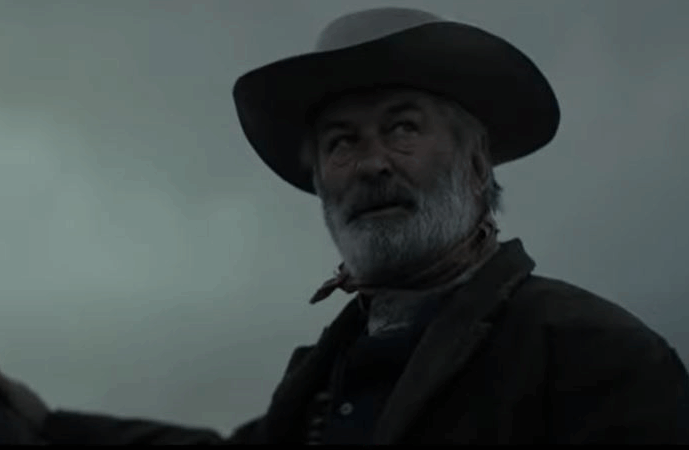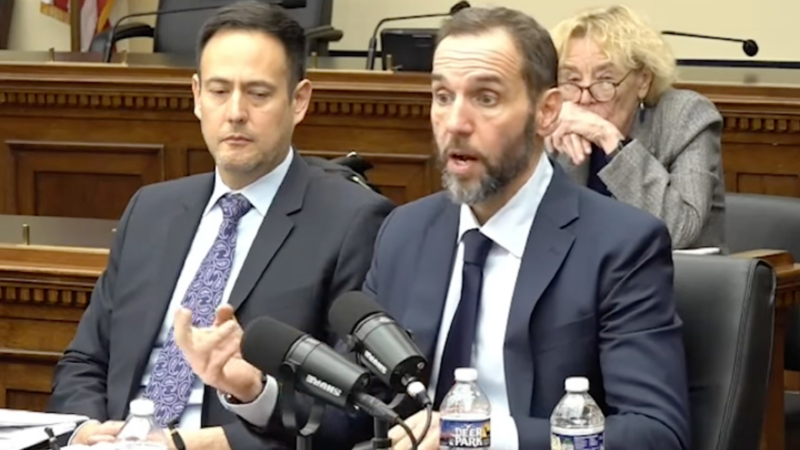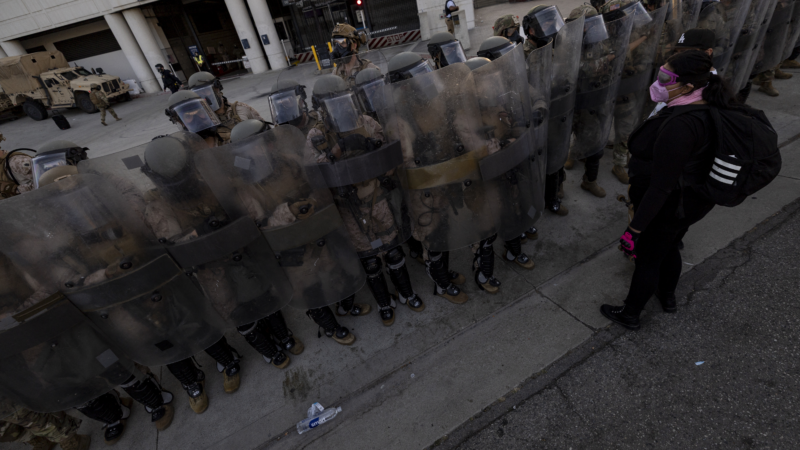Over three years after on-set tragedy, ‘Rust’ is in theaters and available to rent
More than three years after cinematographer Halyna Hutchins was killed on set, the Western movie Rust is now in a limited number of U.S. theaters and on demand.
Alec Baldwin, who co-produced the movie, stars as the gun-toting outlaw Harland Rust in the fictional film set in the 1880s. He goes on the run with his grandson, played by Patrick Scott McDermott, after the 13-year-old is sentenced to death by hanging for the accidental killing of a local rancher.
“Some things in this life you can’t get back, I reckon,” Baldwin’s character says in one scene shown in the trailer.
While rehearsing a scene for Rust in New Mexico in 2021, Baldwin pointed a prop gun that was supposed to have blank ammunition. Instead a live bullet from the gun went off, killing Hutchins, who was behind the camera, and injuring director Joel Souza.
The shooting set off investigations over how live bullets got onto the set. Hutchins’ death also resulted in multiple high-profile trials. The film’s armorer, Hannah Gutierrez-Reed, is now serving prison time for involuntary manslaughter. First assistant director David Halls pleaded no contest to negligent use of a deadly weapon and was sentenced to probation. And Baldwin was spared prison time, when Judge Mary Marlowe Sommer, the same New Mexico judge who sentenced Gutierrez-Reed and Halls, dismissed his involuntary manslaughter case during a trial last summer.
As part of a wrongful death settlement, Hutchins’ husband, Matt Hutchins, became an executive producer on the film. And production of Rust resumed, with Souza returning to finish as the director.
“It was a really tough decision, and I’ll be very honest — I was a wreck through most of the second go-round,” Souza told NPR last fall, before the final film premiered at the Camerimage Film Festival in Poland. Souza said he wanted to complete the work he started with Hutchins, though he understands the lingering anger over Halyna Hutchins’ death.
When Rust premiered in the fall, Hutchins’ mother, Olga Solovey, said in a statement shared with NPR, “Alec Baldwin continues to increase my pain with his refusal to apologize to me and his refusal to take responsibility for her death.”
Baldwin’s representatives declined to comment to NPR about the film’s release or criticisms made by Halyna Hutchins’ family in Ukraine. Attorney Gloria Allred, who represents Hutchins’ mother, father and sister in a civil suit, said it remains in litigation in New Mexico. They declined to comment on the film’s release.
In the fall, Souza reflected on the film. “Obviously, the human cost and the tragedy of it overshadows everything, rightfully so, and is so much more important than any movie,” he told NPR. “I guess I just wonder if people will sort of see past that and engage with it as a film, or if it will be a thing where people just can’t ever separate the movie from what happened during its filming.”
U.S. military strikes 5 more alleged drug boats, killing 8
The U.S. military says it struck five alleged drug-smuggling boats over two days. The attacks killed eight people, while others jumped overboard and may have survived. U.S. Southern Command did not reveal where the attacks occurred.
Capitol riot ‘does not happen’ without Trump, Jack Smith told Congress
Former special counsel Jack Smith also described President Trump as the "most culpable and most responsible person" in the criminal conspiracy to overturn the 2020 election results, according to a transcript of Smith's closed-door interview with the House Judiciary Committee.
Trump will drop push for National Guard deployments in Chicago, LA and Portland, Ore.
Courts blocked troops from deploying in Chicago and Portland, Ore., and the Los Angeles deployment effectively ended after a judge blocked it earlier this month.
What Stranger Things gets right about wormholes
The final episode of fifth season of the Netflix series Stranger Things is out this week, and the concept of a wormhole figures largely into it. While the show is a work of fiction, theoretical wormholes have making appearances for decades not only in science fiction but in actual science.
Photos: The world welcomes the new year
As fireworks light the sky and crowds count down together, communities around the globe welcome 2026.
Meet five new species discovered in 2025
A bumpy snailfish, Andean mouse opossum and ancient sea cow were just some of the many species described in 2025.







